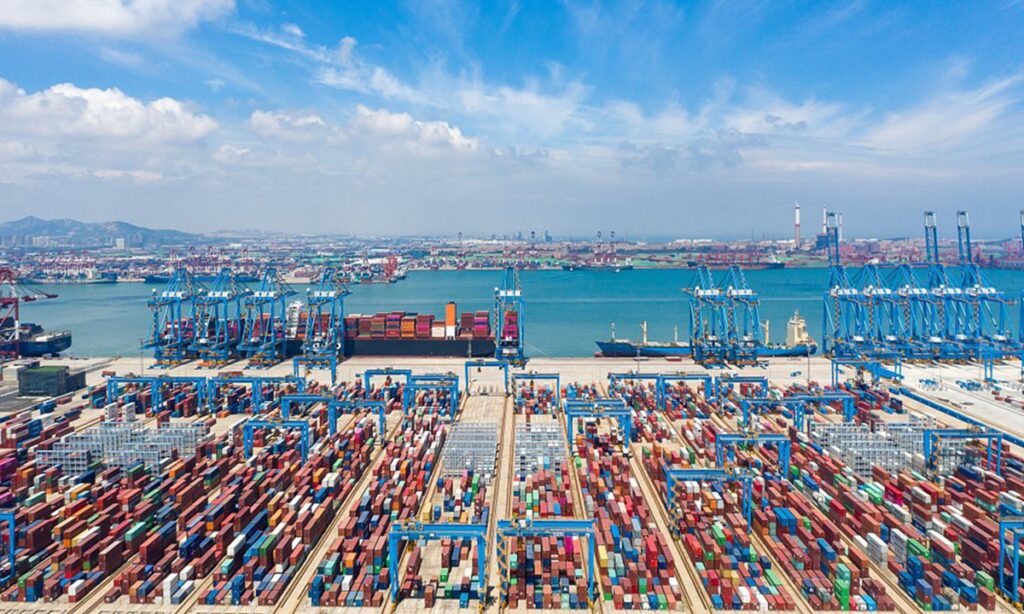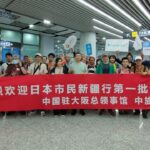This year marks the 10th anniversary of the China-proposed Belt and Road Initiative (BRI), a global cooperation platform that demonstrates China’s vision of global development and offers solutions to the reform of the global governance system and multi-faceted challenges. Against this backdrop, the Global Times is publishing a series of interviews with renowned scholars, think tanks and financial institutions, sharing their insights and understanding of how this initiative has earned global recognition and growing esteem. This is the eighth installment in the series.
A number of European countries are partners to the BRI initiative. European Commission President Ursula von der Leyen said in March that the EU does not want to “decouple” from China, which is pursued by the US, but needs to balance its relationship with China and focus on “de-risking.” Against this backdrop, the Global Times reporter Li Xuanmin (GT) conducted an interview with Helga Zepp-LaRouche (HZL), founder of Germany-based Schiller Institute, a political and economic think tank. According to her, the two D-words (decoupling and de-risking) are basically the same, which illustrate implicitly the intention of the US and its allies to contain China’s economic rise.
GT: In recent two months, the word “de-risking” has moved from obscurity to ubiquity. Why is “de-risking”, all of a sudden, gaining popularity?
HZL: The word is just a semantic gobbledygook. Somebody obviously realized that the idea of “decoupling” from China sounds very negative, and upsets the industrialists in various countries, who have investments in China or have major trade relations with China, and who know perfectly well that a “decoupling” from China would, in many cases, mean their ruin.
“Isn’t it reasonable to reduce risks?” The word “de-risking” on the other hand sounds more confidence inspiring along the lines. But in fact, the word is completely manipulative, and the fallacy of composition is the fact that there was and is no-risk coming from China, which has proven to be a very reliable business partner.
The “decoupling” and the “de-risking” push are just the same. Behind it is the geopolitical intention to contain China’s economic rise by cutting it off from certain advanced technologies. But that train has left the station already, given the fact that China is leading the world in terms of numbers of patents, as well as key areas of science and technology, such as 5G technology.
Also, the politicians pushing for “de-risking” don’t seem to understand what every competent industrialist knows, that it is not possible to instantly replace China’s trade and investment partnership, since China offers very well-built infrastructure and a qualified labor force, which still has to take years to be built up in other countries.
So the “de-risking” policy is prone to hurt its originators more than it could hurt China, as we have seen already with the blowback coming from the sanctioning policy.
GT: The de-risking policy has been coordinated through the G7 rich countries’ club, which seeks to maintain the US’ undemocratic privileges over the rest of the world. From your perspective, is it possible for them to push “de-risking” strategy with China?
HZL: The G7 countries will only do so at the expense of their own economies. We have this year the 10th anniversary of the Belt and Road Initiative (BRI), and there are presently 151 countries and 30 major international organizations who are cooperating with China under the initiative, which has become the one of the major locomotives of the world economy.
Extremely belatedly the G7 discovered this at their recent summit in Hiroshima, Japan, and they said: “Oh, we should talk more to the so-called ‘swing’ states”, like Brazil, Indonesia and India.
It obviously overlooked that some of them are already members of the BRCIS, and the other has reportedly also applied for membership in the BRICS. I think that a good portion of colonial arrogance, and that is the reason why the establishments of the G7 have completely misread the desire to end colonialism for good on the side of the countries of the Global South.
GT: What is the situation in major European economies like Germany and France?
HZL: Within the Europe, there are several countries in eastern and southern Europe who are resisting the pressure coming from the US and the EU Commission, because they feel that this policy is completely against their own economic self-interest.
In France and Germany there is a huge struggle, because these economies suffer already from the increase of the energy prices as a result of both the sabotage of the Nord Stream pipelines and the sanctions against Russia.
French President Emmanuel Macron talks a lot about the need for a greater autonomy of Europe, but people still wait to see, if deeds follow his words.
Germany is in an existential crisis and faces complete deindustrialization as a result of the same policies, and on top of that, German industry, which can’t afford the elevated energy prices, is lured by the US Inflation Reduction Act, to leave Germany and invest in the US instead. Several leaders of industry associations are warning that Germany as an industrial state is threatened, but the political pressure on them to follow the US and EU Commission line is enormous.
The attempt to “de-risk” from China will only lead to the self-destruction of the economies of the West, and threatens to lead to the absolute sidelining of the European continent in terms of world history.
GT: This year marks the 10th anniversary of the BRI. What changes have the initiative brought to the world in the past decade?
HZL: The full realization of the BRI, in addition to other initiatives China has put forward, offers a comprehensive concept for the harmonious development of all countries on the planet. These policies have already proven to be the engine to overcome poverty and underdevelopment for many countries of the Global South.
China’s ongoing focus on innovation has resulted in some remarkable outcomes. And it also means that it is possible for China to avoid any so-called “long-term cycles,” because the continued renovation of the productive powers of labor and the industrial capacities through the sustained injection of scientific and technological discoveries has produced steady economic growth.
The smart thing for the West would be, to just join the initiative for win-win cooperation, rather than trying to contain China. Then the human species could concentrate together on the common aims of mankind, such as overcoming poverty for all nations, finding cures for thus far uncurable diseases, cooperate in making fusion technology commercially usable to achieve energy and raw material security for everybody, join hands in exploring near space, discover the secret of life, protect the planet against asteroids, and many other wonderful things.
The old unipolar world has already crumbled. With what China is offering, we as a human species have the chance to overcome geopolitics and replace it with a system of cooperation among sovereign nations, which promotes the benefit of all of humanity.
Think about where we as mankind want to be in a hundred, a thousand years from now. Do you really want, when we are building a village on the moon and then a city on Mars, “de-risking” from each other? No, we will develop together and realize our potential as the only creative species known in the universe so far. From that perspective, the method of thinking behind “de-risking” goes against the trend of history and of the laws of the physical universe.
(Global Times)




